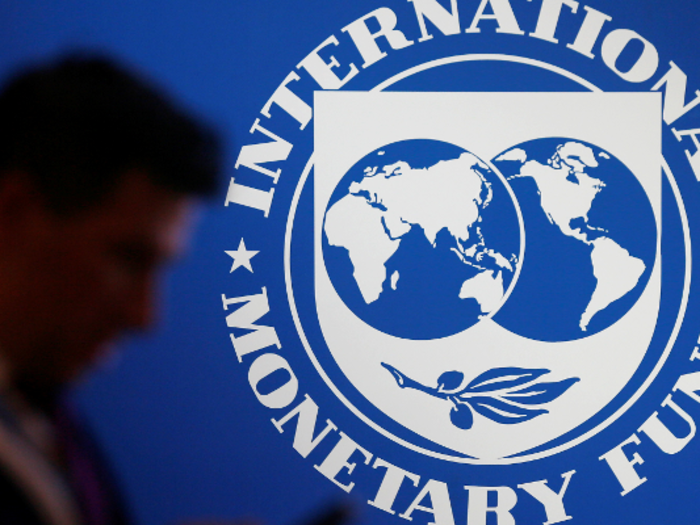
As central banks around the world have loosened monetary policy over the last decade, corporations have felt encouraged to pursue "financial risk-taking," according to a report from the IMF published in October.
That dynamic has made some systemically-important economies more vulnerable to an economic slowdown, the report found.
"Corporate leverage can also amplify shocks, as corporate deleveraging could lead to depressed investment and higher unemployment, and corporate defaults could trigger losses and curb lending by banks," the IMF wrote.
In a recession half as severe as the 2008 financial crisis corporate debt-at-risk — which is owned by firms that can't cover interest expenses with their profits — could increased to $19 trillion, or almost 40% of total corporate debt in major economies, the IMF said.

The trillion-dollar asset manager said in a report in October that BBB-rated bonds, the lowest bracket of the investment-grade debt, now accounts for more than 50% of the market compared to 17% in 2001.
As demand for investment-grade debt has grown, the creditworthiness of issuers has fallen. According to BlackRock, leverage levels are creeping toward the highest readings since 1992. The firm measured leverage using a ratio of debt minus cash and cash equivalents to twelve-month EBITDA.
"We believe the sharp increase in the proportion of BBB-rated constituents has made the investment-grade bond sector riskier than in recent years," BlackRock wrote. "BBB-rated bonds are typically the most vulnerable of all investment-grade debt in a recession."
If BBB-rated bonds are downgraded, they would then be considered high-yield debt, or "fallen angels." That could cause the value of the issues to fall, the firm added.

The central bank warned in its November Financial Stability Report that the riskiest companies have accounted for the bulk of rising debt in recent years.
The Fed also expressed concern about outstanding BBB-rated debt approaching an all-time high.
"In an economic downturn, widespread downgrades of bonds to speculative-grade ratings could lead investors to sell the downgraded bonds rapidly, increasing market illiquidity and downward price pressures in a segment of the corporate bond market known already to exhibit relatively low liquidity," the central bank wrote.
The ratio of debt-to-assets for all publicly-traded nonfinancial companies has hit its highest level in two decades, and the leverage ratio among debt-heavy firms is near a historical high, the Fed added.
 Love in the time of elections: Do politics spice up or spoil dating in India?
Love in the time of elections: Do politics spice up or spoil dating in India?
 Samsung Galaxy S24 Plus review – the best smartphone in the S24 lineup
Samsung Galaxy S24 Plus review – the best smartphone in the S24 lineup
 Household savings dip over Rs 9 lakh cr in 3 years to Rs 14.16 lakh cr in 2022-23
Household savings dip over Rs 9 lakh cr in 3 years to Rs 14.16 lakh cr in 2022-23

Copyright © 2024. Times Internet Limited. All rights reserved.For reprint rights. Times Syndication Service.